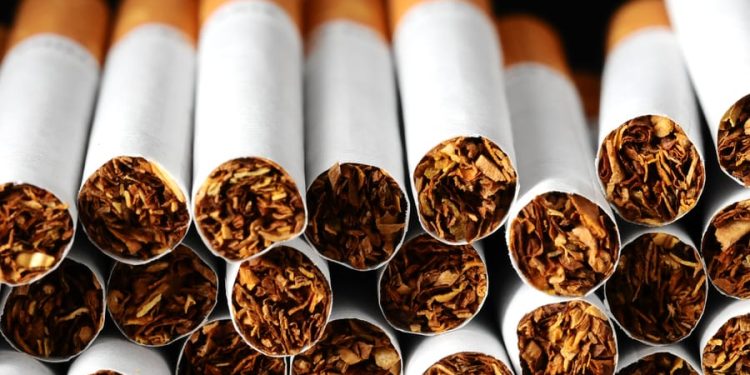Ghana Scores 55 on 2025 Tobacco Industry Interference Index; VAST Ghana Calls for Stronger Policy Safeguards
Vision for Accelerated Sustainable Development Ghana (VAST Ghana) is urging government to tighten safeguards protecting public health policymaking from the influence of the tobacco industry, following the country’s performance in the 2025 Global Tobacco Industry Interference Index.
Ghana scored 55 in the latest ranking, a marginal improvement from 58 in 2023, placing the country 38th globally and 11th out of 20 African countries. The Index evaluates how effectively governments shield health policies from commercial interference in line with Article 5.3 of the WHO Framework Convention on Tobacco Control (FCTC).
According to the findings, Ghana’s Public Health Act, 2012 (Act 851) and the Tobacco Control Regulations, 2016 (L.I. 2247) provide a strong statutory foundation for tobacco control. However, persistent implementation gaps continue to create avenues for indirect industry influence.
A key concern raised in the report is the non-operationalisation of Section 18 of L.I. 2247, which requires the Ministry of Health to issue a code of conduct guiding public officers and contractors in their interactions with the tobacco industry. The absence of such a code, VAST Ghana notes, weakens institutional protection against conflicts of interest.
The Index further highlights the absence of a mandatory disclosure system for engagements between public officials and the tobacco industry. Although civil society monitoring did not record overt cases of collaboration, the lack of transparency remains a major governance gap.
VAST Ghana also expressed concern over inconsistencies between fiscal and public health policies. The Excise Duty Amendment Act, 2023, which imposes duties on e-cigarettes and e-liquids, contradicts the Public Health Act’s prohibition of such products, potentially legitimising banned items once taxes are paid.
Additionally, existing fiscal regimes — including duty-free import allowances, FOB discounts, and ECOWAS-level exemptions — were found to indirectly benefit the tobacco industry by lowering import costs and increasing product affordability.
“Tobacco industry-linked groups continue to push harm-reduction narratives around vaping and e-cigarette products, subtly influencing policy debates,” VAST Ghana warned, noting that such advocacy contradicts the spirit of Article 5.3, which bars industry participation in health policymaking.
The organisation proposed several policy actions, including:
- Immediate issuance of the code of conduct required under Section 18 of L.I. 2247
- Mandatory public disclosure of all official interactions with the tobacco industry
- Removal of e-cigarettes and e-liquids from the Excise Duty Amendment Act to align with Act 851
- Compulsory publication of industry financial and operational data
- Regional fiscal policy reforms under ECOWAS to eliminate tax advantages
- Strengthened enforcement of existing smoke-free, advertising and packaging rules
- Regular capacity-building for public officers on identifying and preventing industry interference
With the eleventh session of the Conference of Parties to the FCTC (COP11) and the fourth session of the Meetings of Parties to the Protocol to Eliminate Illicit Trade in Tobacco Products (MOP4) set for Geneva, VAST Ghana is urging the country’s delegation to adopt a strong, evidence-based stance against industry influence.
The organisation emphasised that while Ghana’s slight improvement in the Index signals progress, sustained political commitment will be critical to achieving full compliance with global tobacco control standards.









